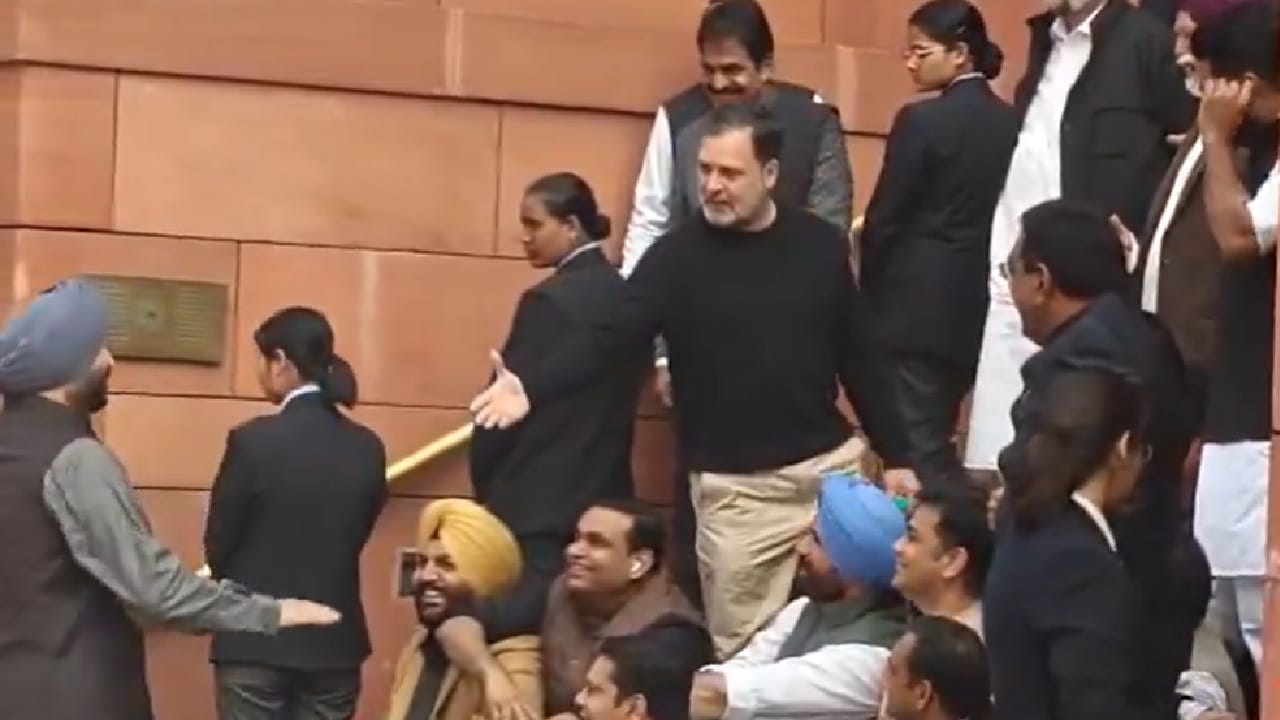New Delhi: A heated exchange broke out between Leader of Opposition Rahul Gandhi and Union minister Ravneet Singh Bittu outside Parliament premises this morning after the Congress leader called the latter “a traitor friend”. Responding to him, Bittu called him “desh ke dushman (enemy of the nation).
The verbal spat between the two senior political leaders took place during the Congress party’s demonstrations outside the Parliament’s Makar Dwar ahead of the day’s proceedings.
#WATCH | Delhi: As Union MoS Ravneet Singh Bittu passes by the protesting Congress MPs at Makar Dwar, Lok Sabha LoP Rahul Gandhi says, “Here is a traitor walking right by. Look at the face…”
LoP Rahul Gandhi offered to shake his hands, saying, “Hello brother, my traitor… pic.twitter.com/5wMgjM8KAW
— ANI (@ANI) February 4, 2026
Bittu, a three-time MP and Union minister of state (MoS) for Railways, quit the Congress and joined BJP ahead of the 2024 Lok Sabha elections.
“Here is a traitor walking right by. Look at the face,” Gandhi said as Bittu passed by. He then offered to shake hands with Bittu, saying, “Hello, brother. My traitor friend. Don’t worry, you will come back (to Congress).”
Bittu snubbed Gandhi and refused to shake hands with him, calling him, “Desh ke dushman.” Following the brief exchange, Bittu slammed the protesting MPs and said that “they are sitting as if they won a war.”
The Congress MPs had been protesting against the suspension of eight Opposition members from the Lok Sabha earlier in the day. The eight MPs were suspended for the rest of the Budget Session for violating House rules and throwing papers at the chair.
These MPs include Congress members Hibi Eden, Amarinder Singh Raja Warring, Manickam Tagore, Gurjeet Singh Aujla, Prashant Yadaorao Padole, Chamala Kiran Kumar Reddy, and Dean Kuriakose, as well as CPM MP S Venkatesan.
